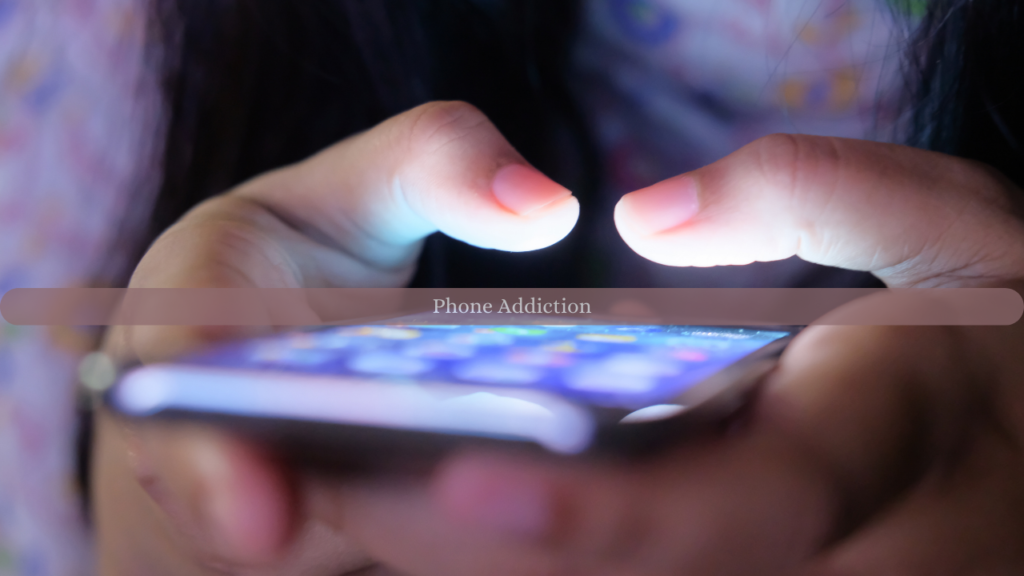
In a world where technology drives nearly every aspect of life, smartphones have become indispensable tools. They connect us to loved ones, provide access to limitless information, and entertain us during idle moments. However, this convenience comes with a hidden cost. Over time, our reliance on cell phones has morphed into a form of dependency that is deeply affecting mental health. The phenomenon of “screen slavery” has emerged, describing the toxic grip smartphones have on our emotional well-being and cognitive functioning.
The Allure of Constant Connectivity
Smartphones are engineered to be addictive. Features like endless scrolling, notifications, and gamified rewards on social media are designed to capture and hold our attention. As users engage with these devices, the brain releases dopamine—a feel-good neurotransmitter associated with pleasure and reward. Over time, the brain begins to crave this stimulation, leading to compulsive phone use.
The average person spends over three hours a day on their smartphone, often without realizing the cumulative toll. While brief interactions might seem harmless, they add up, fostering an unhealthy dependence that interferes with daily life. This dependency is more than a habit; it is a behavioral addiction with significant consequences.
Mental Health Consequences
Anxiety and Stress
The relentless demands of constant connectivity contribute to heightened anxiety. The fear of missing out (FOMO), driven by social media, compels users to remain plugged in, checking notifications, messages, and updates compulsively. This behavior creates a feedback loop, where the anxiety of missing out is only quelled by more screen time, perpetuating the problem.
Moreover, the flood of information accessible via smartphones often leads to information overload. Constant exposure to bad news, sensational headlines, or even trivial updates can increase stress levels, making it harder to maintain a balanced emotional state.
Depression and Loneliness
Paradoxically, devices meant to connect us often leave users feeling isolated. Social media platforms, while offering a window into others’ lives, often promote unrealistic portrayals of perfection. As users compare their reality to these curated images, feelings of inadequacy and low self-esteem can take root. Studies have linked excessive smartphone use to higher rates of depression and loneliness, particularly among young people.
Sleep Disruption
Smartphones are also major culprits in disrupting sleep patterns. The blue light emitted by screens interferes with the production of melatonin, the hormone responsible for regulating sleep. Furthermore, many people struggle to detach from their phones before bed, engaging in late-night scrolling that delays sleep onset. Poor sleep, in turn, exacerbates mental health issues like anxiety and depression, creating a vicious cycle.
Breaking Free from Screen Slavery
Overcoming phone dependency requires intentional effort. Setting boundaries, such as designated screen-free times or places, can help create healthier habits. Digital detoxes—periods of complete disconnection from devices—allow users to reset their relationship with technology. Apps that monitor screen time can also provide valuable insights into usage patterns and encourage mindful consumption.
Incorporating offline activities, like exercise, reading, or spending time with loved ones, can replace excessive screen time with fulfilling alternatives. Practicing mindfulness and being present in the moment are also powerful tools for mitigating the mental health effects of smartphone addiction.
Conclusion
The toxic effects of cell phone dependency on mental health are undeniable. While smartphones have transformed the way we live, unchecked use can lead to anxiety, depression, and disrupted sleep. Recognizing the signs of screen slavery is the first step toward reclaiming balance in our lives. By adopting healthier habits and fostering intentional use, we can free ourselves from the grip of our screens and prioritize mental well-being.








